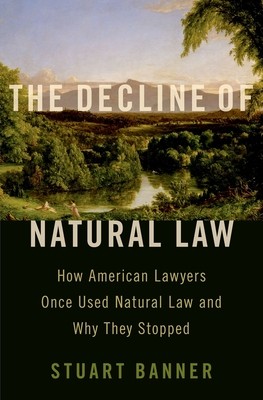
- We will send in 10–14 business days.
- Author: Stuart Banner
- Publisher: Oxford University Press, USA
- ISBN-10: 0197556493
- ISBN-13: 9780197556498
- Format: 16 x 23.6 x 2.5 cm, hardcover
- Language: English
- SAVE -10% with code: EXTRA
Reviews
Description
An account of a fundamental change in American legal thought, from a conception of law as something found in nature to one in which law is entirely a human creation. Before the late 19th century, natural law played an important role in the American legal system. Lawyers routinely used it in their arguments and judges often relied upon it in their opinions. Today, by contrast, natural law plays virtually no role in the legal system. When natural law was part of a lawyer's toolkit, lawyers thought of judges as finders of the law, but when natural law dropped out of the legal system, lawyers began thinking of judges as makers of the law instead. In The Decline of Natural Law, the eminent legal historian Stuart Banner explores the causes and consequences of this change. To do this, Banner discusses the ways in which lawyers used natural law and why the concept seemed reasonable to them. He further examines several long-term trends in legal thought that weakened the position of natural law, including the use of written constitutions, the gradual separation of the spheres of law and religion, the rapid growth of legal publishing, and the position of natural law in some of the 19th century's most contested legal issues. And finally, he describes both the profession's rejection of natural law in the late 19th and early 20th centuries and the ways in which the legal system responded to the absence of natural law. The first book to explain how natural law once worked in the American legal system, The Decline of Natural Law offers a unique look into how and why this major shift in legal thought happened, and focuses, in particular, on the shift from the idea that law is something we find to something we make.EXTRA 10 % discount with code: EXTRA
The promotion ends in 18d.01:47:42
The discount code is valid when purchasing from 10 €. Discounts do not stack.
- Author: Stuart Banner
- Publisher: Oxford University Press, USA
- ISBN-10: 0197556493
- ISBN-13: 9780197556498
- Format: 16 x 23.6 x 2.5 cm, hardcover
- Language: English English


Reviews